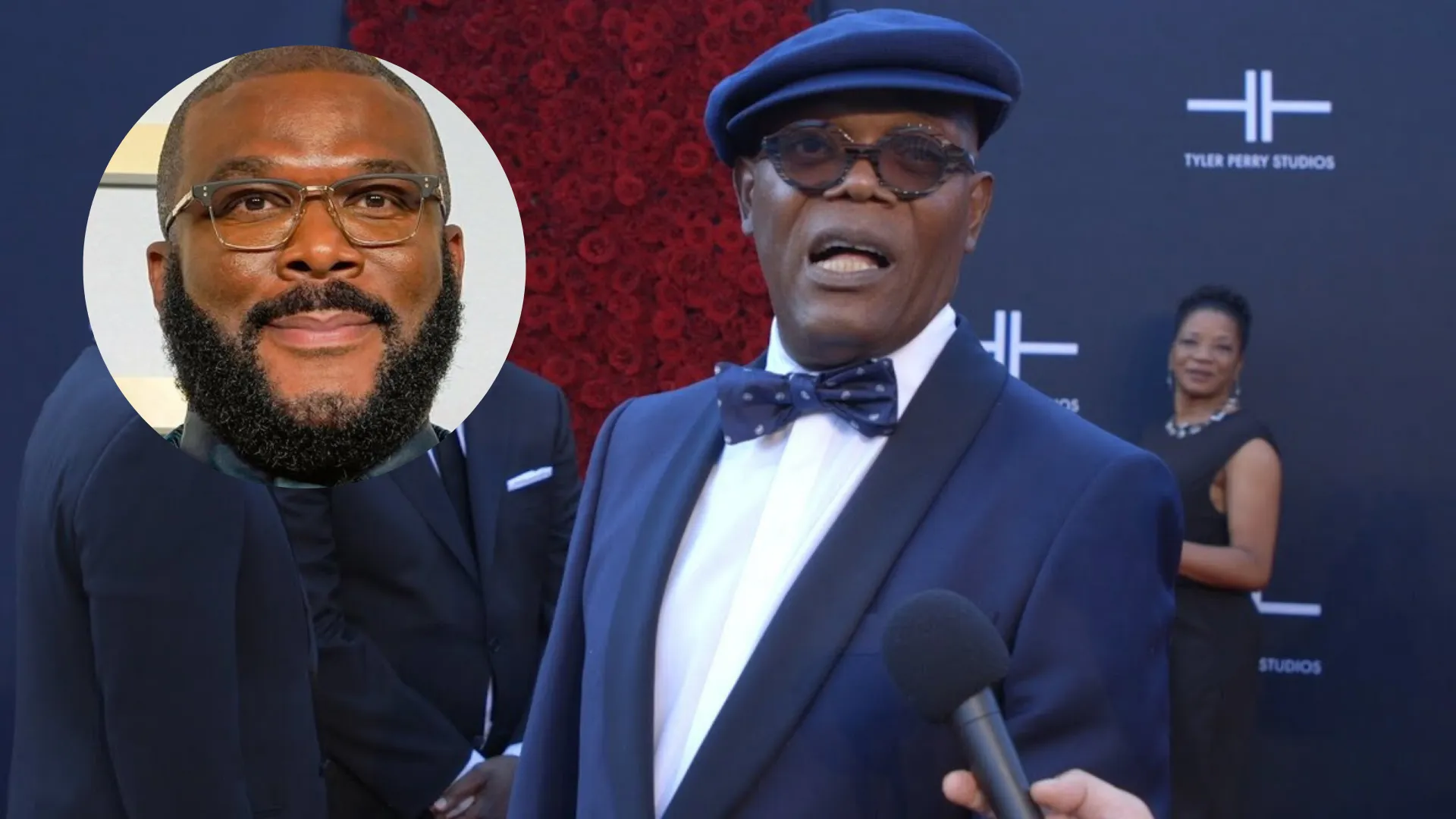 Samuel L. Jackson attends "The Banker" press conference
Samuel L. Jackson attends "The Banker" press conference
In a shocking revelation, Samuel L. Jackson reportedly compared Tyler Perry to the notorious reputation of Sean “Diddy” Combs, implying that Perry exerts control over Hollywood similarly to how Diddy dominated the music industry. Known for his candidness, Jackson did not hesitate to discuss Perry’s business practices, which he suggested mirror Diddy’s famous control over his domain.
This comparison has sparked a lively discussion, leaving fans and critics wondering whether Perry’s Hollywood empire is truly as tightly controlled as Jackson has implied.
Tyler Perry, a filmmaker, actor, and studio owner, has made a major impact on the entertainment world, building his brand from the ground up. His story is a testament to resilience and ambition, rising from humble beginnings to become one of the most influential figures in Hollywood.
However, Jackson’s remarks have cast a shadow over Perry’s empire, raising questions about whether his control truly reflects Diddy’s dominance in the music industry.
The Rise of Tyler Perry’s Empire
Tyler Perry’s journey from struggling artist to Hollywood powerhouse is nothing short of inspiring. With his famous *Madea* films and a range of successful television shows, Perry has created a unique brand that resonates with millions.
In 2019, he opened one of the largest studios in Atlanta, marking his success in the industry. Perry’s work has given him an unprecedented level of influence, particularly within Black Hollywood, where his productions have provided countless opportunities for Black actors, writers, and filmmakers.
However, some industry insiders have raised concerns about Perry’s approach to his work and storytelling. Critics claim that Perry maintains tight control over his projects, which has led to accusations of micromanagement.
Samuel L. Jackson’s comparison between Perry and Diddy seems to align with these concerns, implying that Perry’s dominance in Hollywood may be driven by the same intensity and ambition that fueled Diddy’s rise in the music industry.
 Tyler Perry Noam Galai/Getty Images
Tyler Perry Noam Galai/Getty Images
Parallels to Diddy’s Power in the Music Industr
Sean “Diddy” Combs, who held great influence in the 1990s and early 2000s, built a music empire, but his career wasn’t without controversy. Diddy’s infamous “White Parties” became symbols of exclusivity and power, attracting many celebrities and high-profile figures. While these events represented the peak of his success, there were always rumors and controversies surrounding Diddy’s management of artists and associates.
In his remarks, Jackson highlighted similarities between Diddy’s control over the music industry and Perry’s influence in Hollywood. Perry’s empire is seen as a centralized model where he reportedly makes nearly all the creative decisions.
While this approach helps Perry maintain a consistent brand, some in the industry argue that it limits the diversity of perspectives and stories within his works. Jackson seems to suggest that Perry’s control may be preventing the Hollywood community from flourishing in ways that don’t align with his vision.
Samuel L. Jackson: Known for Speaking His Mind
Samuel L. Jackson is no stranger to controversy. With a career spanning decades and a host of iconic roles, Jackson has become known for his unfiltered opinions and willingness to speak his mind.
His latest comments about Tyler Perry have stirred up a particular debate, as they imply not only about Perry’s business methods but also about his influence over the entire industry.
Some have speculated that Jackson’s views stem from his belief in the importance of diverse storytelling in Hollywood. Unlike Perry, who often serves as the sole writer, director, and producer of his projects, Jackson has collaborated with a wide range of directors and creatives throughout his career.
By comparing Perry to Diddy, Jackson may be emphasizing a perceived lack of collaboration in Perry’s work, suggesting that Hollywood could benefit from a more open and inclusive approach.
The Debate Over Tyler Perry’s Influence
Jackson’s remarks have sparked a lively debate among fans and industry insiders alike. Supporters of Perry argue that his single-handed control over his projects is the reason for his success in an industry full of barriers, particularly for Black creators.
Perry’s success has been a beacon of hope for those wanting to see more diversity and representation in entertainment, and many believe that his control has been essential to his ability to tell stories on his own terms.
On the other hand, critics echo Jackson’s concerns, pointing out that Perry’s approach may limit the variety of perspectives in his projects. While Perry has provided opportunities for many Black artists and creatives, some argue that his storytelling often relies on familiar tropes, potentially stifling the chance for new voices to emerge.
Jackson’s comparison to Diddy underscores the idea that Hollywood, like the music industry, could benefit from greater collaboration and diversity in creative thinking.
What Lies Ahead for Perry’s Hollywood Empire?
The conversation sparked by Samuel L. Jackson’s remarks has highlighted ongoing questions about control, influence, and diversity in Hollywood.
Tyler Perry’s success story remains an inspiration to many, and his impact on the industry is undeniable. However, Jackson’s critique has raised important considerations about the value of collaborative creativity and the potential downsides of centralized control in an industry that thrives on fresh perspectives.
Whether or not Tyler Perry will respond to Jackson’s comments remains to be seen. Regardless, Jackson’s comparison of Perry to Diddy has sparked a larger discussion about the dynamics of power in Hollywood.
As Perry continues to shape his legacy, this debate may influence how he and others approach storytelling and collaboration in the future. For now, Samuel L. Jackson’s words have left a mark, challenging the industry to reflect on the balance between control and collaboration in the pursuit of creative excellence.
-1728286267-q80.webp)
-1729240501-q80.webp)

-1729319563-q80.webp)